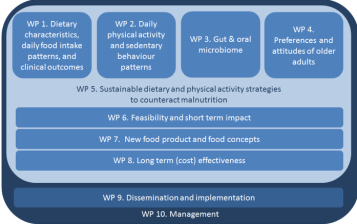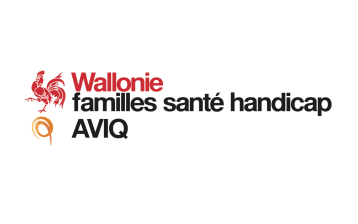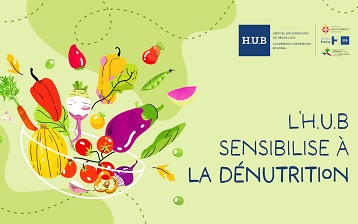

The three institutions of the Brussels University Hospital (H.U.B), Institute J. Bordet, ULB Erasme Hospital & Queen Fabiola Children’s University Hospital, are participating in Nutrition Day 2022 and raising awareness of malnutrition associated with illness in a hospital environment.
For this cause, a slide show with messages from healthcare professionals regarding malnutrition was created and projected on the screens in the outpatient consultation rooms, visible to patients and visitors. Also, the slides were projected on the institutes’ websites.
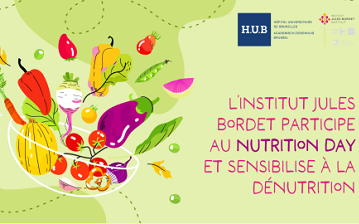
The risk of malnutrition is particularly high for cancer patients
The Jules Bordet Institute, a reference center in the fight against cancer, is evaluating malnutrition among cancer patients, also thanks to patients’ input through the annual “Nutrition Day” audit carried out among hospital patients on 10 November 2022.
Between 20% and 40% of cancer patients are affected by malnutrition.
Malnutrition associated with chronic diseases is a risk factor that is far too often neglected. Some patients already show signs of malnutrition at the time of the cancer diagnosis. Following hospitalization, between 20% and 40% of cancer patients are affected by malnutrition (the figure varies depending on the type of cancer and patient age). Patients with cancer of the head and neck zone, upper digestive tract, and hematological cancers are at particular risk. Characterized by weight loss, loss of appetite, and reduced muscle mass, malnutrition increases the risk of intolerance to treatment, prolonged hospitalization, and reduced quality of life. In some cases, the side effects of treatment, a depressive and /or anxiety reaction, and social isolation can contribute to malnutrition. Early screening for signs of malnutrition requiring a nutritional intervention is therefore essential.
“Characterized by weight loss, loss of appetite, and loss of muscle mass, undernutrition increases the risk of prolonged hospitalization, intolerance to (cancer) treatments, and reduced quality of life.”
A balanced diet, physical activity, and correct weight to combat malnutrition
During the post-treatment period, it is important for the patient to eat correctly, continue with appropriate physical activity and maintain a correct weight (a “healthy” weight). A healthy and balanced diet coupled with the practice of physical activity enables the muscles to assimilate proteins and thereby maintain the essential muscle mass in case of illness. Physical activity also acts positively on hormone levels and immunity, thereby increasing tolerance to treatment and boosting powers of recovery. Whether as a means of prevention, during treatment, remission, or recovery, it is important to maintain a healthy weight, that is, a BMI of between 20 and 27 kg/m².
Report any suspicions of malnutrition
Malnutrition is of concern to all, whether a patient, close friend, relative of a patient, or member of the care staff. Any signs of malnutrition should be reported, such as loss of appetite, involuntary weight loss, or fatigue, to the doctor or dietitian so that the appropriate dietary solutions can be applied. Consisting of six dietitians, two nutrition nurses and a doctor specialized in clinical nutrition, the nutrition team of IJ. Bordet accompanies cancer patients on a day-to-day basis throughout their treatment so as to avoid malnutrition. Malnutrition needs to be detected early so that appropriate care and support can be provided.
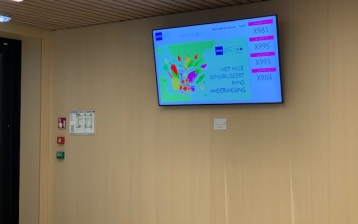
The slides were projected on the screens at the
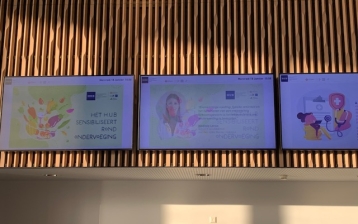
outpatient consultations. (in a rotating mode)
Participate in Nutrition Day 2022 and help improve our knowledge of malnutrition
Nutrition Day, initiated by the European Society of Clinical Nutrition and Metabolism (ESPEN), is an audit carried out by hundreds of hospitals and care homes worldwide with the aim of collecting data on the nutritional condition of patients, comparing these data between institutions and raising awareness among patients and nurses of an often under-estimated problem. Specifically, the patients of six H.U.B. units will be able to benefit from a nutritional audit. The parameters identified will enable hospitals worldwide to improve malnutrition screening and care.
“Vegetable juices (almond juice, rice juice, etc.) are not milk and are not suitable for the needs of children.”
“A loss of muscle mass or a decrease in muscle strength is a sign of undernutrition. Report it to your doctor or dietitian.”
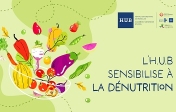

Contact Sylvie for inquiries on Belgium campaign activities and for publishing of your Good Practice on this website.




